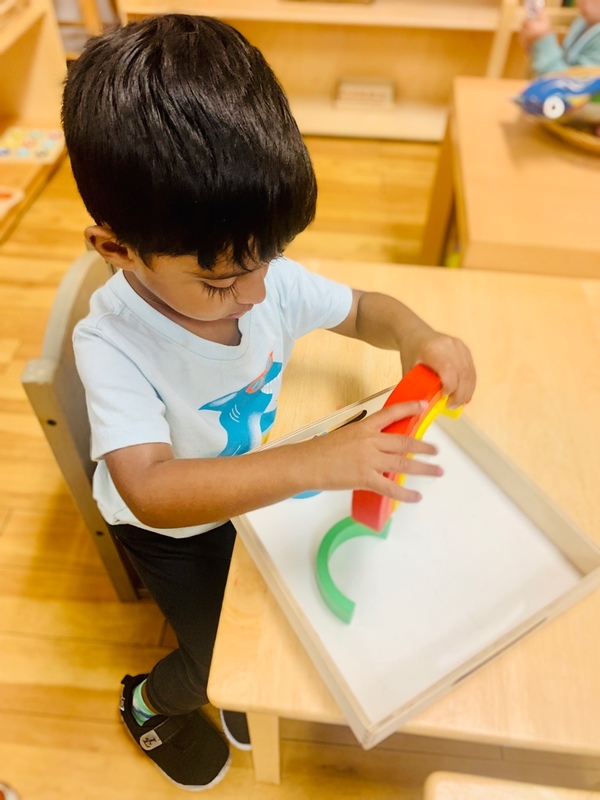(858) 759-0631
Does your child favor your spouse over you?
Toddlers and preschoolers go through phases when they play favorites with their parents. Indeed, as teachers embracing the Montessori Method, we see and hear your children's interactions with peers and adults daily. There are ways to ensure positive behaviors from our toddlers and preschoolers who may love one of us over the other. Let's first get a handle on why this happens.
This acting out by playing favorites may be a result of when they:
- Need to express fear, sadness, or anger
- Sense it bothers the 'rejected' parent
- Feel more intimate with the parent they spend the most time
- The sense of one of their parents pulling away from them, or
- Hear their parents being unclear or indirect about boundaries
As a result, we parents are faced with how to set these boundaries with the child who prefers being with mommy or daddy more.
How do we know our children are playing favorites?
We may hear and see them wanting to be with just one parent. Disheartening as that may be, we must remember that whether we are the 'accepted' parent or the 'rejected' one, we need unified roles and rules to maintain boundaries, structures, and expectations as a team.
First, we must start from a position of respect—respect for our children as aware and sensitive persons and respectful of our spouse.
This is a critical component of Maria Montessori's teaching. With our focus on individualized learning and as a private school with student-to-teacher ratios, we seek to create and maintain a total balance in your child's development--all in cooperation with you.
This is harder if you're 'second banana' to your spouse; how there are many lessons your child will find many. For example, the rejected parent needs to be mature and calm and take no offense their son or daughter says, "I hate you! Go away!"
Ouch! However, it's just a temporary feeling. Our toddlers live in the here and now. Your child feels safe rejecting you because he or she feels secure in your love!
Instead of getting angry or retaliating, just be mature! Your child will take away a positive message from us just because you turned the other cheek.
On the other side, the accepted or preferred also has a positive role well. We must hear our child's disagreement and respond to their concerns— clearly, directly, and in lockstep with our spouse. We help children distinguish between their wants and needs by stating our responses to their requests.
In other words, we work to avoid creating a schism between parents and between the parents and the child via favoritism. This kind of teaching your child learns at our Montessori school.
In some weak or dysfunctional families, the rejected parent may make poor decisions based on what makes their child feel good rather than providing an environment necessary for their child's growth. As parents, we must learn that it is not the role of the child to affirm the adult—it's the other way around.
And we must be honest with ourselves about our needs to be the favorite parent and the problems that can create further down the road.
Our children must know they are loved and appreciated for what makes them unique and individual. Love is unconditional. Favoritism is not. So, as parents, we must work toward making our children feel successful and competent—not us. Luckily this type of teaching your child receives at Lifetime Montessori School can help you achieve these goals.
Blog Cateogry:
Featured Image:

